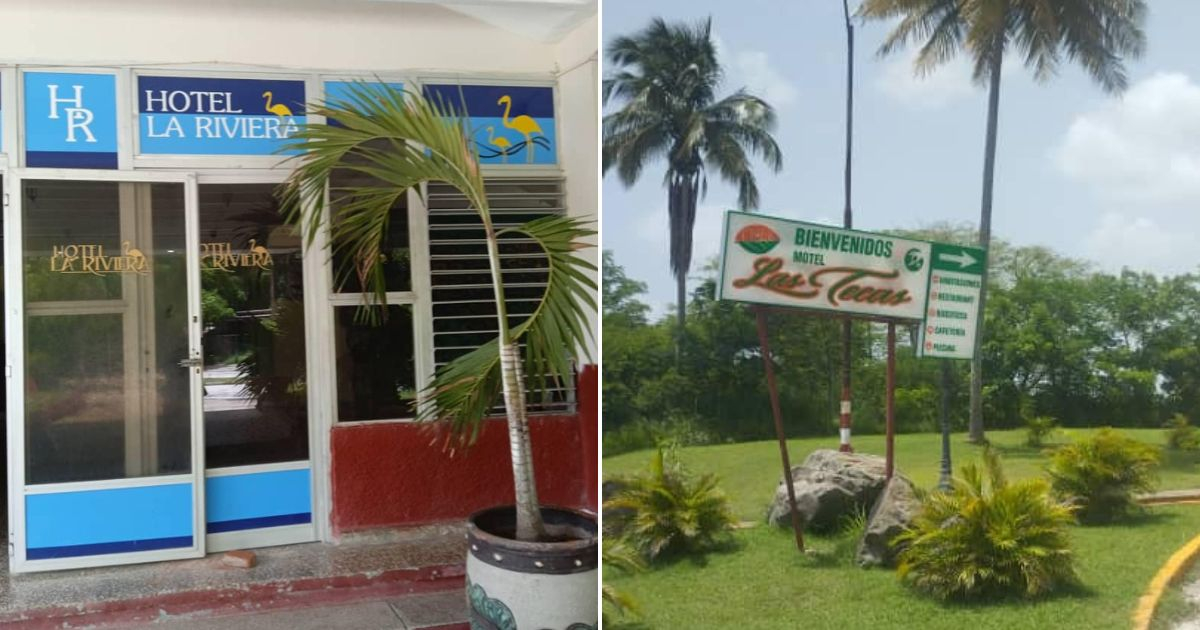The government of Villa Clara has imposed fines of up to 15,000 pesos on individuals involved in corruption incidents at various hotels in the province. The officialist Facebook profile, Inspección Villa Clara, reported last Monday that numerous irregularities were detected during an inspection at Motel Las Tecas and Hotel Riviera, including consumer deception, price violations, and illegal activities.
Corruption Detected in Villa Clara Hotels
During the inspection at Motel Las Tecas, several irregularities were found. The receptionist denied the use of Transfermóvil and EnZona payment gateways, despite both services being available at the establishment. Additionally, there was a price alteration in the pool area, where vodka was sold for 525 pesos instead of 425, imported canned beer for 210 pesos instead of 208, and canned soda for 210 pesos when it should have been 190 pesos.
Moreover, an illegal activity was detected involving a member of the security team, who was working as an unauthorized parking attendant.
According to the official profile, similar irregularities were found at Hotel Riviera. Consumer deception was evident, as 160 pesos were charged for three plates of fried croquettes with pickles that should have cost 115 pesos. Additionally, in the preparation area, meatballs weighed 150 grams instead of the 160 grams required by standards, while the pickle plates served contained only 30 grams instead of the required 89 grams, clearly violating the standards.
Another notable irregularity was the overcharging of 250 pesos for a sandwich with mortadella and cheese, which should have cost 150 pesos. Furthermore, a follow-up in the storage area revealed a shortage of 9.67 kg (equivalent to 21.02 lb) of beef.
In both locations, those responsible were fined according to Decrees 30/21 and 67/22, with amounts ranging from 4,000 to 15,000 pesos. These sanctions were imposed as a direct consequence of the multiple irregularities detected during the inspections, including consumer deception, price violations, and illegal activities. In addition to the fines, disciplinary actions were requested against the responsible entities.
The economic crisis in Cuba has led people to seek economic resources by any means necessary. Recently, a corruption scandal in the Special Development Zone of Mariel (ZEDM) resulted in an embezzlement of more than 21 million pesos and several workers being sanctioned.
According to El Artemiseño, the case began to be investigated in 2023 when the Electric Company of Artemisa became a victim of a misappropriation scheme involving high-ranking officials and employees, demonstrating the vulnerability of the internal control system.
In July, the Cuban officialist press revealed a significant sugar theft that occurred in a mill in Artemisa last October. This happened in the Harlem agro-industrial complex in Bahía Honda municipality, where 12 people were involved in the theft of two tons of sugar, which they transported in a ZIL 130 truck belonging to the company.
FAQs on Corruption in Villa Clara Hotels
The following questions and answers provide more details and context about the recent corruption cases in Villa Clara hotels and the broader economic issues in Cuba.
What were the main irregularities found in Motel Las Tecas?
The main irregularities included the denial of payment gateways Transfermóvil and EnZona, price alterations in the pool area, and unauthorized parking activities by a security team member.
How were consumers deceived at Hotel Riviera?
Consumers were deceived by being overcharged for food items such as fried croquettes and a sandwich with mortadella and cheese. Additionally, food portions did not meet the required standards.
What steps is the government taking to address corruption?
The government has imposed fines ranging from 4,000 to 15,000 pesos and requested disciplinary actions against the responsible entities as a direct consequence of the detected irregularities.
How does the economic crisis in Cuba contribute to corruption?
The economic crisis has driven people to seek out economic resources by any means, leading to increased incidents of corruption and fraud as individuals and entities try to navigate financial hardships.
